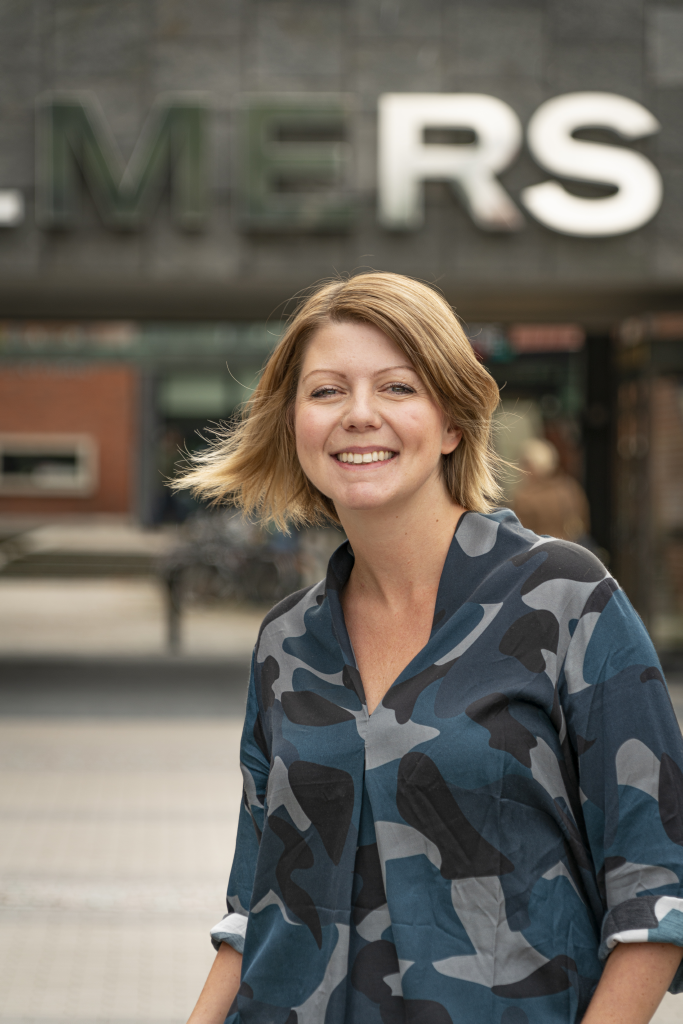
New ways of applying research
The IMP project focuses on creating the best conditions for knowledge and results that are created at Swedish universities to have an impact in society. The aim is to give researchers different opportunities for applying their research. Sixteen universities, SISP and PRV are participating in the project.
The IMP project is a Vinnova-funded project in which several universities in Sweden work together to jointly implement common working methods that advance knowledge and provide benefits to others in society. At SLU, methods and models are currently being evaluated in the pilot project KliMat-spelet, which is an exciting collaborative project between SLU and the University of Skövde.
Charlotte Emlind Vahul, innovation advisor at Chalmers Innovation Office is leading the IMP project. She sees the project as an opportunity for the country’s seats of learning to develop methods and ways of working to identify aspects of research that have value for others and can contribute to the further societal development.
Crucial to correctly administer knowledge assets
“The focus of the project is on knowledge assets that have the potential to create benefits in society,” says Charlotte Emlind Vahul, project manager for the IMP project. “It’s about methods, about results and how knowledge and research results are used. It’s also about how to administer knowledge assets. The method on which the IMP project is based has been developed by Professor Ulf Petrusson at the University of Gothenburg.”
Having control over the knowledge assets of a project and having a strategy for how to administer them to make a difference is crucial to creating more value from research. Something that is now being tested in the ongoing pilot project KliMat-spelet.
Pilot project testing new working model
“In the case of KliMat-spelet – an interactive computer game for upper secondary school pupils about climate that SLU is developing together with the University of Skövde – we use the method to answer questions such as who has the right to use collected data, how can and should collected statistics be made useful, who has the right to access and utilise data and which data should not be made available and thus not included in the game. Another issue is how the interfaces should be built and which responsibilities apply regarding utilisation of the material, says Charlotte.
The method includes a series of critical questions that need to be asked in a project, while at the same time it is also a working method and a checklist for research projects so that they can identify their knowledge assets. The method is also a useful tool for innovation advisors.
“With questions such as what does knowledge embrace, which functions are available, who has created what and who is entitled to the benefits, the method also serves as a checklist for meetings with investors or potential partners. And for the research group, it’s good to conduct an early analysis, see what you’ve created, think about what you want to share with others or keep for yourself. It's also a great way to find out who has done what in the research team and to create a good starting point early for future work",Charlotte explains.
Future societal challenges require new knowledge
But lists and methods in all their glory, the most important question is perhaps – what does the research group want to achieve? How do you want to advance and create value?
“Society has expectations for us to share knowledge” says Charlotte Emlind Vahul, project manager for the IMP project. “What we are trying to find are suitable ways of utilising research and the knowledge resources that exist. What we hope to do is develop a working method that will enable more knowledge to be utilised. In this work it is important to understand what the researchers create and who is entitled to the knowledge, who can use it and who can do what with the knowledge. SLU Holding has a crucial significance in the work at SLU and is a natural partner for researchers at the university to join as a team.”
Christer Frånlund, innovation advisor at SLU Holding agrees.
“The value of a research project’s knowledge of its intellectual assets – own or others’, existing or future – cannot be emphasized enough,” says Christer Frånlund, innovation advisor at SLU Holding. “We at SLU Holding are ready to contribute with our experience, but the most important thing now is that SLU and other seats of learning take the lead in the exciting and important job that awaits for knowledge assets coming out and having an impact in society.”
IMP project continuing until end of the year. Experiences and results from the project, such as case studies from specific research projects, examples of application of theories, tools to work with, results from the project, exchange of experience and more, will be presented on a digital platform.
Want to know more about the IMP project?
This email address is being protected from spambots. You need JavaScript enabled to view it., project manager, IMP project.
Christer Frånlund, Senior innovation advisor and participant in the IMP project.
Read more about the IMP project’s pilot project KliMat-spelet (in swedish).


